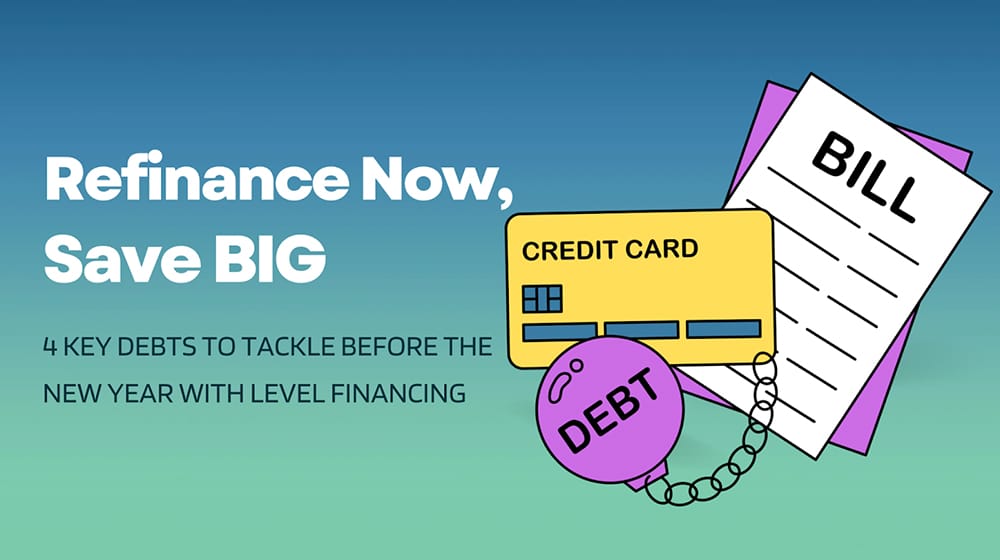You’re not the only one wondering if you’ll ever earn as much as those influencers on Instagram. We’ve all felt that pinch of money anxiety when the cost of everything seems to be skyrocketing. But those flawless photos don’t tell the whole story. Comparison leads to discontentment.
In fact, a recent survey by Charles Schwab showed that nearly one-third, or 29%, of Americans experience money ‘dysmorphia’—a distorted view of their finances, often stemming from comparisons to others.
Keep reading for ways to realign your earning expectations and define success on your own terms.
Navigating the Gap as a Job Seeker
First things first, get clear on what typical salaries look like for someone with your experience wanting to break into your industry.
Sites like Glassdoor and Payscale can give you an idea of average pay ranges so you don’t go in with unrealistic expectations. Remember, entry-level means just that—room to grow as you build skills. Not everyone starts at the top!
Take a good, hard look in the mirror. What strengths do you bring to the table right now as a candidate?
Be honest about the abilities you have yet to develop so you can focus your job search accordingly. Building experience under your belt may mean starting in roles that give you room to learn new things, even if they’re not your dream job yet. Patience and persistence pay off down the road.
Key Takeaway: Research salary averages for your field and experience level. Assess your skills honestly to find roles that fit where you’re at now and help you gain expertise over time.

The Influence of Social Media
Scrolling through Instagram or LinkedIn, you’d think everyone makes six figures while living their #bestlife. But behind the scenes, they face challenges and insecurities, too. Before falling down the social comparison rabbit hole, remember that everything’s carefully curated. You’re seeing the highlight reel, not the daily grind or struggles it took to get there.
Despite relatively healthy savings and incomes, many feel inadequate. This disconnect between reality and perceptions is particularly acute among Gen Z and millennials, with around 40% admitting social media fuels their money anxiety.
Though the average American household’s net worth has grown by 37% since 2019, just 14% consider themselves wealthy.
The solution is to be picky about who you follow.
Surround yourself with people focused on community, not consumerism.
Mute or unfollow accounts that fuel feelings of inadequacy. Define what success means for you, not the influencer crowd. Filter out the noise and get clear on your own goals.
Key Takeaway: Social media offers exaggerated glimpses of reality. Follow motivational accounts that align with your values. Tune out those who trigger unhealthy comparisons.
Strategies for Employers
Employers can help bridge the expectation gap by being upfront about typical salary ranges for positions. That way, candidates understand their earning potential as they gain skills and experience within the company.
Offering things like training programs and tuition reimbursement incentivizes talent to come aboard and develop over time, too.
Building a culture focused on mentorship shows employees there’s a path forward if they’re willing to put in the work. Even if starting salaries seem low, the opportunity for advancement down the road helps attract ambitious candidates looking to establish themselves in your field. Invest in your people, and they’ll pay it back in loyalty.
Key Takeaway: Share salary ranges early in the hiring process. Offer advancement opportunities and training to attract talent, even if starting wages are lower for entry-level roles.
Economic Changes and Their Impact
Graduates entering the workforce often expect to start well above the $45–$60,000 average for roles in journalism, education, government, and beyond. However, building the skills and experience needed for higher pay takes time.
Managing expectations upfront prevents major disappointments down the line. In many industries, entry-level jobs focus on developing transferable core competencies to set you up for success in more advanced, higher-paying positions later in your career. Patience and persistence now pay off exponentially later.
Key Takeaway: Economic factors make salary growth tough. Manage expectations when starting out. Entry-level roles build core skills for commanding higher pay down the road.
The Role of Education
No doubt, a college degree opens doors, but it doesn’t guarantee you’ll land the corner office right off the bat.
Top salaries go to those with specialized skills in high demand right now. Degrees get your foot in the door, but abilities drive your value and advancement long-term.
Certifications, training programs, and online courses are great options alongside traditional degrees. Focus on being a lifelong learner.
Key Takeaway: Degrees alone won’t ensure high salaries immediately. Develop flexible, in-demand skills through continuous learning to increase your value and earnings potential.
Read More: Tips for Teaching Money Management to Your Kids

Employer Perspectives on Negotiation
Remember, job offers are about more than just your credentials on paper. Factors like industry standards, company budgets, and the precise value you’d bring to the role all weigh in.
Every job has a target salary range based on these variables, so hiring managers can extend fair offers benchmarked against similar positions.
Do your research to understand typical salaries in your field for someone at your experience level. Come to the negotiation table ready to communicate openly about your circumstances and what you can reasonably accept. Employers aim for win-win solutions, so meet them halfway.
Key Takeaway: Many factors shape salary offers to align with the role’s value. The research industry averages and communicates clearly during negotiations to find common ground.
Final Thoughts
Instant, big money is rare. But with realistic expectations, patience as you gain expertise, and a focus on continuous growth, you have the power to shape your earning potential over time. Meanwhile, employers who foster development and advancement help close the expectation gap. That way, you can build an earning trajectory to be proud of.




